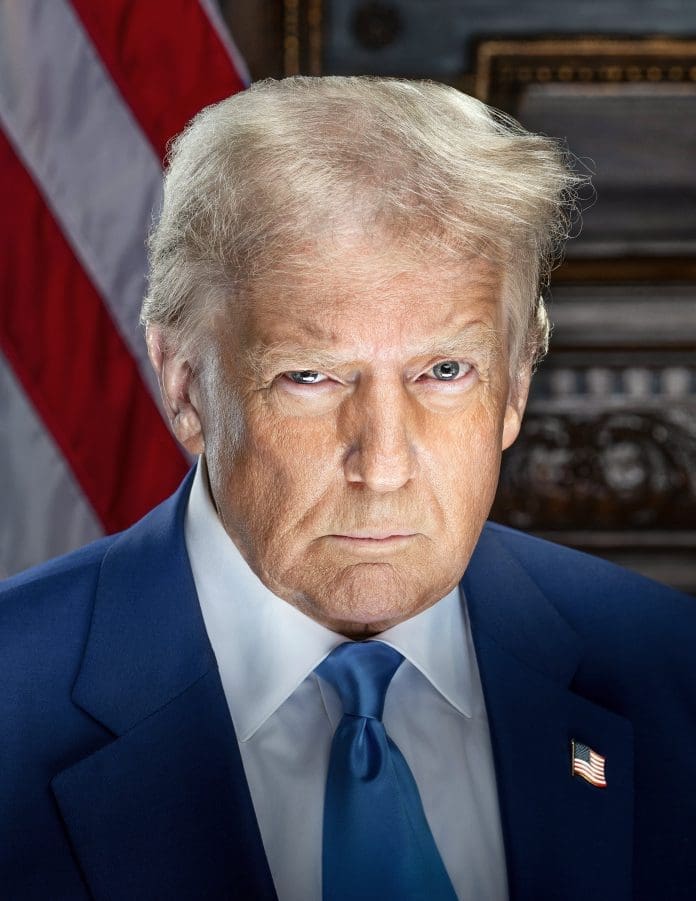President Donald Trump announced Wednesday that Indian Prime Minister Narendra Modi has assured him India will stop purchasing Russian oil, a claim that could mark a significant shift in U.S. efforts to pressure Moscow over the Ukraine conflict.
Speaking to reporters at the White House’s Oval Office, Trump described the alleged commitment as “a big stop” and said Modi assured him the change would occur “within a short period of time,” though it couldn’t happen immediately. The President acknowledged the transition would require time, calling it “a little bit of a process, but that process will be over soon.”
However, India’s Ministry of External Affairs responded Thursday without confirming any such pledge, instead issuing a carefully worded statement emphasizing that the country’s energy import decisions remain guided entirely by consumer interests and market conditions.
“India is a significant importer of oil and gas,” ministry spokesperson Randhir Jaiswal said in the statement. “Ensuring stable energy prices and secured supplies have been the twin goals of our energy policy. This includes broad-basing our energy sourcing and diversifying as appropriate to meet market conditions.”
The ministry added that India has sought for years to expand energy trade with the United States, noting that “the current Administration has shown interest in deepening energy cooperation with India. Discussions are ongoing.” Notably absent from the ministry’s response was any mention of halting Russian oil purchases or any assurance given to President Trump.
The issue has become a flashpoint in Washington’s strategy to isolate Moscow economically. Russia remains India’s top oil supplier, exporting 1.62 million barrels per day to India in September, roughly one third of the country’s total oil imports. For months, Modi has resisted American pressure to curtail these purchases, with Indian officials defending them as essential to national energy security and consumer protection.
Trump told reporters he was “not happy” that India was buying Russian crude because it allows Moscow to continue what he called its “ridiculous war” in Ukraine. He suggested that ending India’s Russian oil purchases would accelerate resolution of the conflict. “If India doesn’t buy oil, it makes it much easier, and they’re not going to buy,” Trump said, adding that India could “go back to Russia after the war is over.”
The President said his next target would be China, another major buyer of discounted Russian crude. India and China are the two top buyers of Russian seaborne crude exports, taking advantage of discounted prices Russia has been forced to accept after European buyers stopped purchases and Western sanctions were imposed following Moscow’s February 2022 invasion of Ukraine.
Trump’s comments come amid ongoing trade tensions between Washington and New Delhi. In August, Trump announced a 25 percent tariff on India as a penalty for importing Russian oil and gas, building on a previously announced 25 percent tariff rate. The combined levies now reach 50 percent on certain Indian goods, among the highest tariffs imposed by the United States on any trading partner.
Data from research firm Kpler shows Russia exports about 3.35 million barrels of crude per day, with India taking approximately 1.7 million and China taking 1.1 million. A genuine halt to Indian purchases would represent a major blow to Russian energy revenues, which remain crucial to funding Moscow’s military operations.
Yet India’s measured response suggests no firm commitment has been made. The Ministry of External Affairs statement carefully avoided confirming Trump’s characterization of the discussion, instead reaffirming established policy positions about diversifying energy sources and protecting consumer interests in what it described as “a volatile energy scenario.”
During the White House exchange, Trump praised Modi as “a great man” and said “he loves Trump.” The President also asked reporters, “I don’t know, maybe that’s a breaking story, can I say that?” before announcing what he described as Modi’s assurance.
India has consistently maintained a neutral stance on the Russia Ukraine conflict, arguing that its energy partnerships with Moscow are driven by economic and strategic considerations rather than political alignment. Indian officials have previously noted that when global oil markets faced instability following Russia’s invasion, they were encouraged by Western partners, including the United States, to purchase Russian crude within price cap limits to help stabilize global energy markets.
The timing and framing of Trump’s announcement raise questions about whether the two leaders had differing interpretations of their conversation. While Trump presented the alleged agreement as definitive, India’s response suggests ongoing discussions rather than concrete commitments.
Treasury Secretary Scott Bessent told reporters he had discussed similar expectations with Japan’s Finance Minister Katsunobu Kato during bilateral talks in Washington on Wednesday, indicating the administration is pursuing a broader campaign to isolate Russian energy exports across multiple Asian markets.
For now, the disconnect between Trump’s announcement and India’s careful response leaves significant uncertainty about whether any substantive change in India’s Russian oil purchasing policy will materialize. The Ministry of External Affairs made clear that energy import decisions will continue to be guided by India’s own economic interests and consumer needs, not external political pressure.
Whether this represents diplomatic positioning ahead of negotiations or a genuine rejection of Trump’s characterization remains to be seen. What’s certain is that with India consuming over 1.4 billion people’s energy needs and Russia offering substantially discounted crude, any shift in purchasing patterns will require more than presidential announcements to become reality.
Source: newsghana.com.gh










